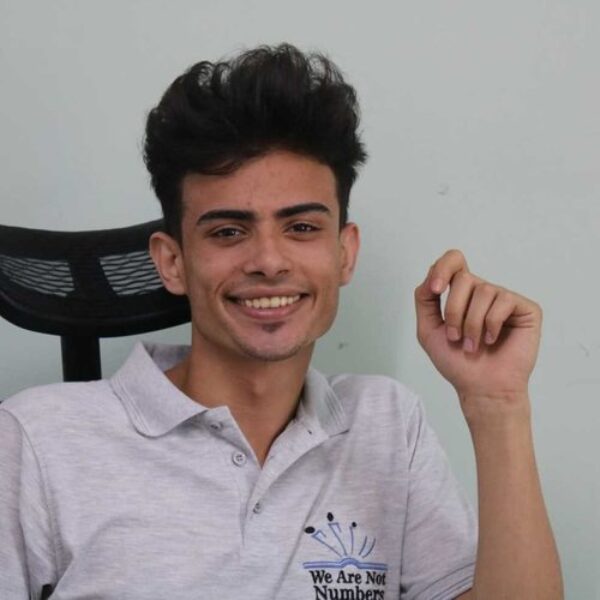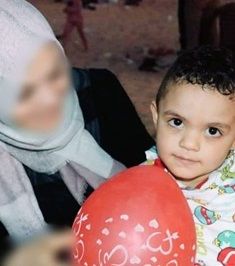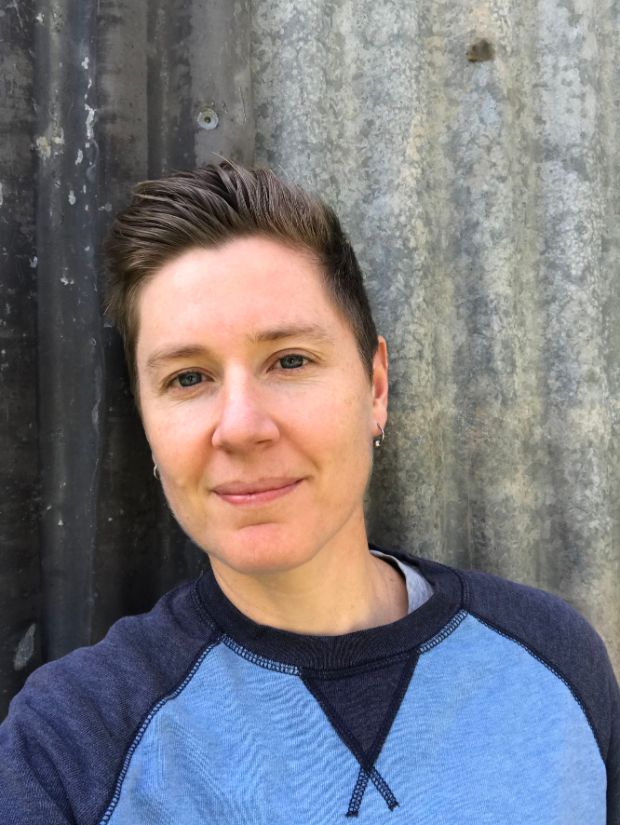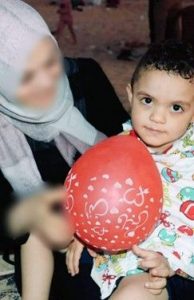
Author’s note: Still reeling from Israel’s latest attacks on the Gaza Strip, Abu Hussam al-Tahrawi, 48, spoke to me about the last moments in the life of his niece, Alaa al-Tahrawi. This is his version of events.
Abu Hussam
On the evening of Saturday August 6, 2022, Abu Hussam al-Tahrawi was sitting on his living room couch in Gaza’s Brazil neighborhood when he learned that a ceasefire had just been brokered between Israel and the Palestinian militant group Islamic Jihad. He rose in excitement with this news and — happy that he had stayed inside during the assault —followed his friends down the street to smoke hookah. With coffee in hand, eyes misty and face pale, Abu Hussam walked towards a friend’s place, where he found a group of men gathered in the street rejoicing and shouting with joy, scornfully making jokes about defeating Israel.
Meanwhile, in a different neighborhood, Alaa al-Tahrawi was preparing dinner for her husband, Ismail, and young son, Ahmed, who was hungry and playing loudly inside their apartment. Alaa asked Ismail to take Ahmed for a quick trip to the supermarket so as to not disturb the neighbors. Ismail did, and as they entered the supermarket — just 100 meters from their apartment — they heard the deafening and familiar sound of a missile attack; their house had been hit.
Back in the Brazil neighborhood, Abu Hussam was in the midst of a friendly political debate when the men heard sounds of heavy bombing nearby. It took Abu Hussam a few minutes to understand what had happened, in which time he learned the artillery had struck his niece Alaa’s house. His first instinct was to be strong and protect his family and community, so he jumped in his car and drove to Block G neighborhood, in Rafah City, where the massacre became immediately visible.
While on his way there, Abu Hussam thought about how Alaa would always put other people before herself and would go out of her way to help others. He loved this about his niece. The next moment, he found himself among a group of residents who were looking at a pile of rubble in place of where Alaa’s apartment once was.
Alaa
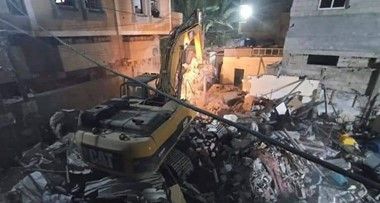
Alaa al-Tahrawi came from a modest family and grew up in the neighborhood of Block G with one sister and five brothers. She was married to Ismail al-Malahi, a medical X-ray technician who worked at Al-Shifa Hospital. Alaa and Ismail had one son together, Ahmed, whom they had only managed to conceive after five years of trying. The three of them lived in a small ground-floor apartment on a narrow street in Block G. In 2004, Alaa had lost a brother, also named Ahmed, who had been intentionally targeted by an Israeli rocket because he was a resistance fighter.
Alaa was close to her uncle, Abu Hussam, and they had both dedicated their time to helping support low-income families put food on the table. Abu Hussam worried that he would have to continue the work alone, without Alaa by his side.
Under the rubble
Along with neighbors, friends, and relatives, Ismail and Abu Hussam began digging through the rubble, trying desperately to reach Alaa and the seven other people who were trapped. Everyone called out, “Alaa, are you under there?” but they received no reply. Because the street was so narrow, it was too difficult to dig into the rubble by hand, and the machinery nearby couldn’t enter the street either. Everyone was distressed and helpless; all they could feel was the misery and injustice of the world.
While everyone was digging frantically, a neighbor, Ashraf al-Qaisi, made the selfless suggestion that they demolish his own house in order to make way for the diggers and excavators to get through. So, the diggers and excavators demolished Asraf’s house and were able to access the street to continue digging. Soon after, they found two bodies from under the rubble; a woman named Hanaa Al Khaldi and her son, Ismail al-Qatros, who — only a week prior — had become engaged.
Seven more hours passed, and finally four more martyrs were found, but Alaa wasn’t among them.
Above the rubble

“We cannot find Alaa’s body,” said the neighbors to Abu Hussam and Ismail. It was now three o’clock in the morning and Abu Hussam and Ismail didn’t want to leave, but they were exhausted and miserable and needed to rest. They looked back at the group of people who were still working and cried. Ismail looked at Abu Hussam’s face and said, “All Gazans look for peace where they cannot find it.” Just then the medics called both of them over to identify a body they had just found. Ismail immediately recognized Alaa’s clothing, now tattered and covered in dirt. Their hearts broke. “How could Israel do this?” they asked themselves. “Where is their faith? Where is their humanity?”
As they carried Alaa’s body to the ambulance, Ismail turned to Abu Hussam and said, “Now Alaa is a martyr, we have to let her go into paradise.”
Abu Hussam feels that he will never be the same after this event, and he fears that the worst is still to come for Palestinians in Gaza. Yet, Abu Hussam is committed to continue the work that he and Alaa did together. He is determined to carry on her legacy of kindness and selflessness, and to keep on moving forward.

